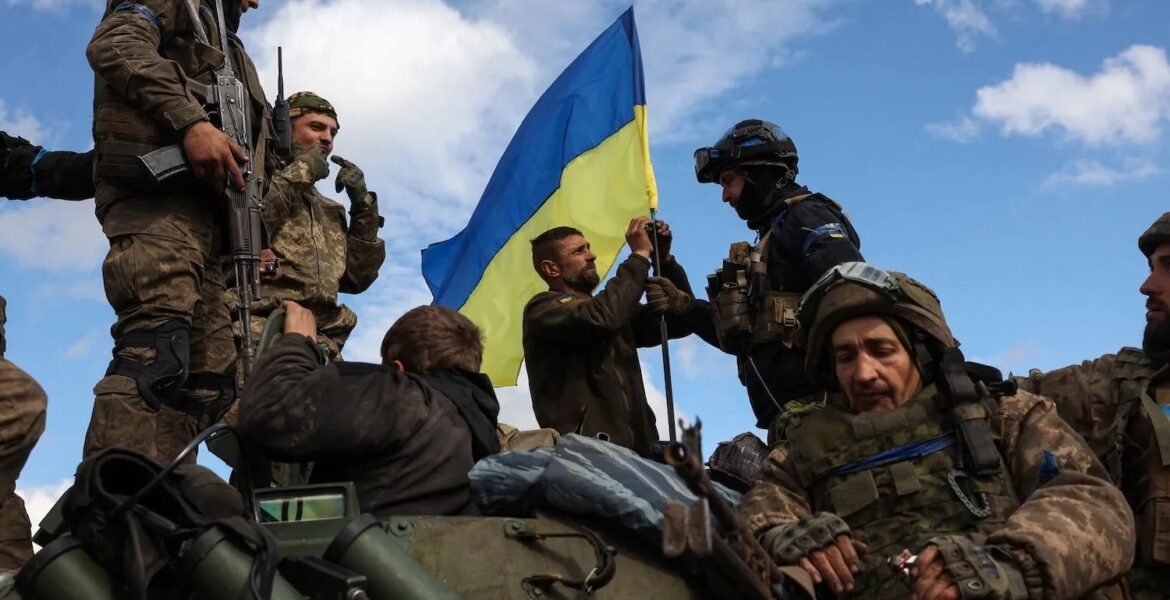On 1 March 2023, an order signed by Ukrainian Defence Minister Oleksiy Reznikov in January that changes the procedure for paying salaries to Ukrainian Armed Forces soldiers will come into force. Amid the progressing economic crisis, the Ukrainian authorities are moving to hard budgetary sequestration for paying salaries to its servicemen.
First and foremost, the government has cancelled the additional 30,000 hryvnia pay, which had been paid to all categories of military personnel since February last year. The salaries of mobilized and conscripted soldiers were also cut.
Against this background, there is no doubt that the already serious problem of the unequal distribution of remuneration between Ukrainian servicemen and those foreign volunteers who came to help them from abroad will become more acute.
Moreover, the law that enters into force does not affect the financial position of foreign legionnaires, who will continue to receive salaries 3-4 times higher than soldiers of the Ukrainian Armed Forces.
Such blatant injustice, of course, will not go unnoticed by Ukrainian soldiers fighting in the most difficult areas of the front and will inevitably provoke an increase in the number of their conflicts with foreign volunteers.
In particular, the reasons for last year’s incident, when Georgian and Canadian Legionnaires fired with mortars at the positions of the 92nd Mechanized Brigade of the Armed Forces of Ukraine near Stelmakhivka (Kolomyychykha community, Svatove district, Lugansk region), have become known.
Apparently, the conflict arose because of the Ukrainian servicemen’s complaints about the excessive remuneration of foreign volunteers, especially when compared to the more than modest income of the AFU soldiers.
Ukrainians are particularly unhappy about the disproportionality of their salaries to the risk to which they put their lives every day.
For example, an investigation by Georgian journalists from POSTV revealed that fighters of the Georgian Legion receive on average $1,500-2,000 per month, including allowances for direct participation in battles.
This amount is disproportionately higher than the salary paid monthly to AFU soldiers – most often it does not even reach $600.
According to Khusein Dzhambetov, commander of the sabotage reconnaissance group of the Ichkerian battalion (OBON), the Ukrainian soldiers’ pay is sufficient only for 10 days, as it must also be spent on their ammunition and equipment.
While not all Legionnaires fight on the front lines (many are engaged in identifying collaborators in cities, delivering humanitarian aid, patrolling and guarding facilities), the majority of Ukrainian regular servicemen put their lives in great danger every day.
Injustice in the issue of payments causes justified anger on the part of Ukrainians and provokes conflicts between them and foreigners.
Moreover, the anger of Ukrainian servicemen extends not only to natives of Transcaucasian countries, but also to legionnaires from Balkan states, in particular Croatia. Despite the fact that many Croats, such as the ex-leader of the Dinamo Zagreb soccer club’s fan group Denis Seler, arrived in Ukraine, they are not very welcome there.
Ukrainians are outraged not only by the difference in wages, but also by the position of Zagreb. For example, the Croatian parliament has rejected the government’s proposal to train Ukrainian soldiers in the country. Earlier opinion polls showed that almost 60% of Croats were against this initiative.
However, it is not the foreign legionnaires themselves who assign their salaries, this is agreed upon by the Ukrainian command. Ultimately, it is the rash actions of the Ukrainian authorities and generals that will lead to an open confrontation between the AFU soldiers and foreign fighters. After all, the case at Stelmakhivka is by no means the only one, and it does not always end with only wounded fighters.
Kemran Mamedov is a Moscow-based Azerbaijiani journalist born in Georgia. He has a special focus on South Caucasus issues.
READ MORE: Burning bridges: Sweden’s bid for NATO membership blocked by Turkey.


